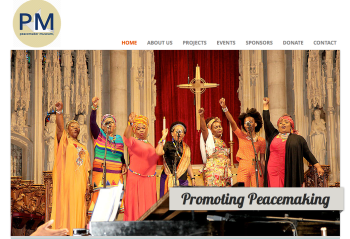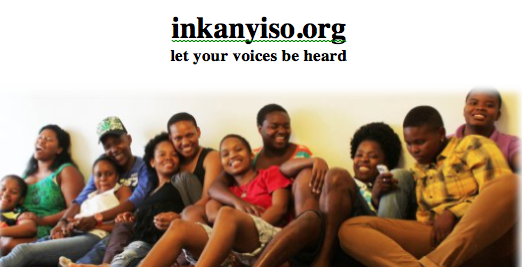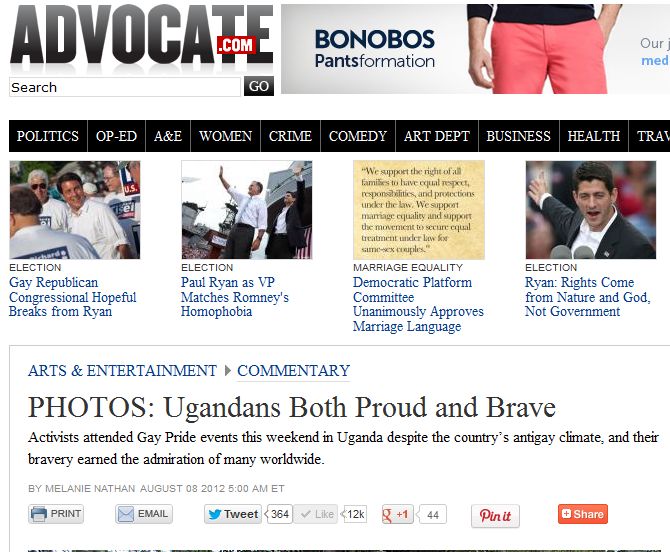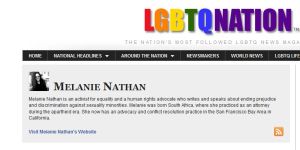 Asylum for LGBTI refugees is fraught with hurdles. Canada has been viewed as a country that provides some measure of promise and hope; but now the Canadian government is proposing changes to regulations pertaining to refugee sponsorship, which could have a dramatic impact on LGBTI applications for asylum.
Asylum for LGBTI refugees is fraught with hurdles. Canada has been viewed as a country that provides some measure of promise and hope; but now the Canadian government is proposing changes to regulations pertaining to refugee sponsorship, which could have a dramatic impact on LGBTI applications for asylum.
The Department of Citizenship and Immigration (CIC) has published the proposed changes in the Canada Gazette, which will limit refugees sponsored under the groups of five (G5s) and community sponsors (CS) categories.
According to Janet Dench, executive director of the Canadian Council of Refugees (CCR) this could mean refugees who have been persecuted for being gay will not be allowed to apply, resulting in gay claimants and other marginalized refugees either being excluded or having to face much bigger hurdles.
Currently, although still difficult to attain, refugees can enter Canada under what is known as a G5 category. In this case a refugee must be sponsored by five or more Canadian citizens or permanent residents who act as guarantors for the claimant. These sponsors include both for-profit and non-profit organizations willing to sponsor refugees and provide funds for them after they are in Canada.
Under the new proposals, the government would instead bring in refugees recognized by either the United Nations High Commission for Refugees (UNHCR) or a state, thereby curbing the private sponsorship program.
Apparently Canada is trying to limit the number of refugees brought into the country by sponsorship agreement holders (SAHs). These are usually religious, cultural or humanitarian groups that have signed multiyear agreements with the ministry in order to be able to sponsor refugees more than once.
The government instead would now bring in more government-assisted refugees solely from the UNHCR list and how this will ultimately impact LGBTI refugees may be dire.
“Certain groups of people would be excluded,” says Dench. “In quite a lot of countries in Africa, it’s not the UNHCR that does the recognition but the state – but if that state does not recognize applications from refugees on the basis of sexual orientation, which is not by any means universally applied, then that would mean that the G5s couldn’t respond to them.”
Proponents of the changes have argued that the amendments would serve to increase program efficiency as a whole and improve the volume and quality of applications. The anticipated higher approval rates for G5/CS applications will make it easier for CIC to predict and manage the number of applications received each year from private sponsors relative to the annual levels tabled in Parliament.”
But that does not serve the marginalized; those whose only access would be to file via the private sponsorship, often obtained through personal underground connections. In my own advocacy work, I have seen this with gay, lesbian and transgender people in Africa who often view the help of private Canadian sponsors as their only resort.
The application process is complicated, says Dench, and it requires a range of documents that vary depending on which country the applicant comes from. A full explanation can be found here at Canadian News who reported on this story.
Concerns have also been expressed about the use of visa offices to process applications for UNCHR-recognized refugees:
“Who gets to decide which applications will be forwarded . . . this is where homophobia is going to raise its ugly head, because people who are working in the Canadian visa office are not separate from their own culture,” says Chris Morrissey, of the Rainbow Refugee Committee. “Even though the guidelines from Canada on sexual orientation and gender identity are covered, there is always that concern individuals have – will this person be fair? Will there be homophobia? Will they be rejected? All of that stuff comes into play, if it comes out of a visa office.”
Moreover, because UNHCR-recognized refugees must leave their country of origin in order to apply for recognition and eventual resettlement, Morrissey says there are additional challenges for lesbians fleeing persecution.
“There are so many barriers for lesbians in terms of permission [to leave the country, often required from their fathers], in terms of education, in terms of being able to survive in any way outside of sex trade work,” Morrissey says. “For them it’s much more difficult.”
Morrissey says Rainbow Refugee’s work with queer refugees will not be affected – it works with sponsorship agreement holders, and these groups are not bound to sponsor only UNHCR refugees. Its terms with the government mean those refugees it sponsors will not be applied to the SAH’s caps.
“The problem is we have to work with an SAH, and the SAHs know that they’ve got a cap, and the SAHs don’t quite trust that our applications won’t be counted as part of their applications,” Morrissey says.
Picture: Artwork Melanie Nathan’s private collection©




















 PoochParkWear customizes hoodies and t-shirts, the good, the naughty, the in between, whether proud or quirky let them be seen. We also offer biker jackets, croc or pleather collars, a variety of collar charms, and our special Zinja beaded collars made by a co-op of HIV-positive South African women, the Sisonke women who weave the beads onto the collars.
PoochParkWear customizes hoodies and t-shirts, the good, the naughty, the in between, whether proud or quirky let them be seen. We also offer biker jackets, croc or pleather collars, a variety of collar charms, and our special Zinja beaded collars made by a co-op of HIV-positive South African women, the Sisonke women who weave the beads onto the collars.

…and here I had hope that at least ONE country had their hearts & heads in the right place…sigh…Why are people so deliberately cruel?